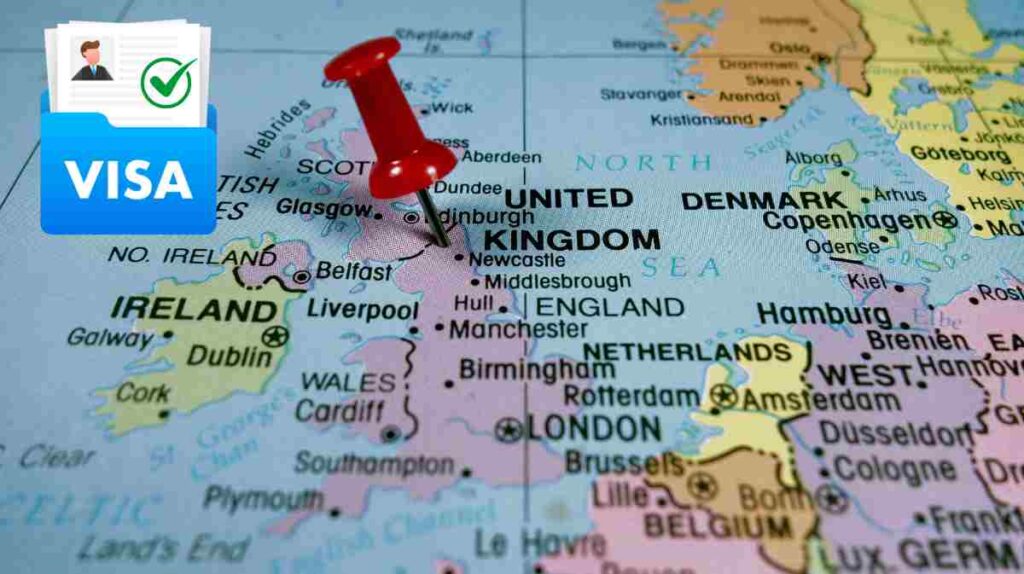Welcome to Subil Recruiters' Blog
News, Work Abroad!

UK work visas explained: find the best one for you
The UK offers several work visa options, each designed for specific job roles and circumstances. Choosing the right visa is crucial for securing employment and ensuring legal work status.
Whether you are a skilled professional, an entrepreneur, or a recent graduate, the right visa depends on your job type, qualifications, and long-term goals. This guide simplifies the process, helping you navigate the different options and pick the one that suits you best.
This article does not cover all visa types, as we have simplified the content to keep it clear and easy to understand. For full details on visa types, please visit the official government website.
Do you need a UK work visa?
Most non-UK citizens need a visa to work in the UK, but some exceptions exist. You may not need a visa if you:
- Are an Irish citizen (as part of the Common Travel Area agreement).
- Have settled or pre-settled status under the EU Settlement Scheme.
- Hold indefinite leave to remain in the UK.
If none of these apply, a work visa is required to take up employment in the UK. Checking eligibility early can prevent delays in the application process.
Types of UK work visas and who they are for
The UK offers various work visas, each with different requirements. Understanding the main categories helps you make an informed choice.
Skilled worker visa: for long-term employment
This visa is for professionals with a confirmed job offer from a UK-based employer. To qualify, applicants must meet specific skill and salary thresholds. Key requirements include:
- A job offer from a UK employer with a sponsor licence.
- A salary of at least £26,200 per year (or £10.75 per hour).
- Meeting English language requirements.
This visa allows workers to stay long-term and apply for permanent residency after five years.
Health and care worker visa: for medical and social care professionals
Designed for healthcare workers, this visa allows faster processing and lower application fees. It is open to professionals in the NHS, care sector, and other approved health-related roles.
Eligibility requires:
- A job offer from an approved UK health and care employer.
- Meeting the required salary and skill level.
- Passing an English language test (if applicable).
This visa offers reduced visa fees and an exemption from the immigration health surcharge.
Global business mobility visas: for overseas company transfers
This category includes multiple visa routes for employees of international businesses transferring to the UK. These visas apply to:
- Senior or specialist workers moving to a UK branch.
- Graduate trainees on structured programmes.
- Businesses expanding into the UK market.
Applicants must have sponsorship from their employer and meet salary requirements.
Graduate visa: for recent UK university graduates
International graduates from UK universities can stay and work in the UK after completing their studies. This visa allows:
- Two years of unrestricted work (three years for PhD graduates).
- The flexibility to work in any field without sponsorship.
This is a good option for graduates exploring career opportunities before committing to a longer-term visa.
High potential individual visa: for graduates from top global universities
This visa is aimed at graduates from leading universities worldwide who want to work in the UK. It allows:
To apply for a High Potential Individual (HPI) visa, you need a qualification from an eligible university. The list of eligible universities comes from global university rankings.
- Work in any industry without employer sponsorship.
- A stay of two years (or three years for PhD holders).
Unlike the Graduate Visa, this one is open to those who studied outside the UK.
Scale-up visa: for skilled workers joining fast-growing UK businesses
This visa helps UK businesses attract top talent to scale their operations. It requires:
- Have a confirmed job offer from an approved scale-up business for at least six months.
- Receive a certificate of sponsorship from your employer with details about your role in the UK.
- Ensure your job is on the list of eligible occupations.
- Meet the minimum salary requirement for your new job.
After six months, visa holders can switch jobs or work independently.
Innovator founder visa: for entrepreneurs starting a business
Entrepreneurs planning to launch a business in the UK can apply for this visa. To qualify, the business must:
- Be innovative and offer something different from existing UK businesses.
- Have potential for growth and job creation.
- Be endorsed by an approved UK organisation.
This visa allows entrepreneurs to develop and run their business while also taking on additional work if needed.
Seasonal worker visa: for short-term agricultural jobs
This visa is designed for those taking temporary jobs in farming and horticulture. Key details include:
- A maximum stay of six months.
- Employer sponsorship is required.
It does not lead to permanent residency, and holders must leave the UK after their visa expires.

How to choose the right visa for your situation
Selecting the best visa depends on several factors, including:
- Whether you have a confirmed job offer.
- The industry you plan to work in.
- Salary and sponsorship requirements.
- Your long-term plans, such as permanent residency.
Reviewing visa conditions carefully helps avoid application issues and ensures you meet eligibility requirements.
Application process: what to expect
Each visa type has specific requirements, but the general process follows these steps:
- Check eligibility: Confirm that you meet all criteria for your chosen visa.
- Gather documents: Prepare necessary documents such as your passport, job offer letter, and proof of qualifications.
- Submit an online application: Complete the visa application form and pay the relevant fees.
- Attend a biometric appointment: Some applicants must visit a visa centre to provide fingerprints and a photo.
- Wait for a decision: Processing times vary by visa type, so applying early is recommended.
Common mistakes that could delay your visa
Many applicants face delays or rejections due to avoidable errors. Common mistakes include:
- Choosing the wrong visa category: Each visa has specific rules, and applying for the wrong one can lead to rejection.
- Missing deadlines: Some visas have strict timelines, and late applications may not be accepted.
- Incorrect or incomplete documents: All information must be accurate and up to date.
- Not checking employer sponsorship: If a visa requires a sponsoring employer, ensure they have the proper licence.
Taking the time to review the requirements and prepare correctly reduces the risk of delays.
Final thoughts
The right UK work visa opens doors to career growth and long-term opportunities. Understanding the different options helps you make informed decisions.
Always check the official UK government website. Proper preparation increases your chances of a successful application and a smooth transition into working in the
UK.
You may also want to read this related article: How to Get a UK Work Visa: A Step-by-Step Guide
STAY ON TOP OF WHAT IS HAPPENING!
Stay updated by subscribing to our newsletter so that we can notify you of all the latest news, changes to immigration law, available scholarships, and latest jobs, employers employing international candidates and what is happening in Education worldwide?



